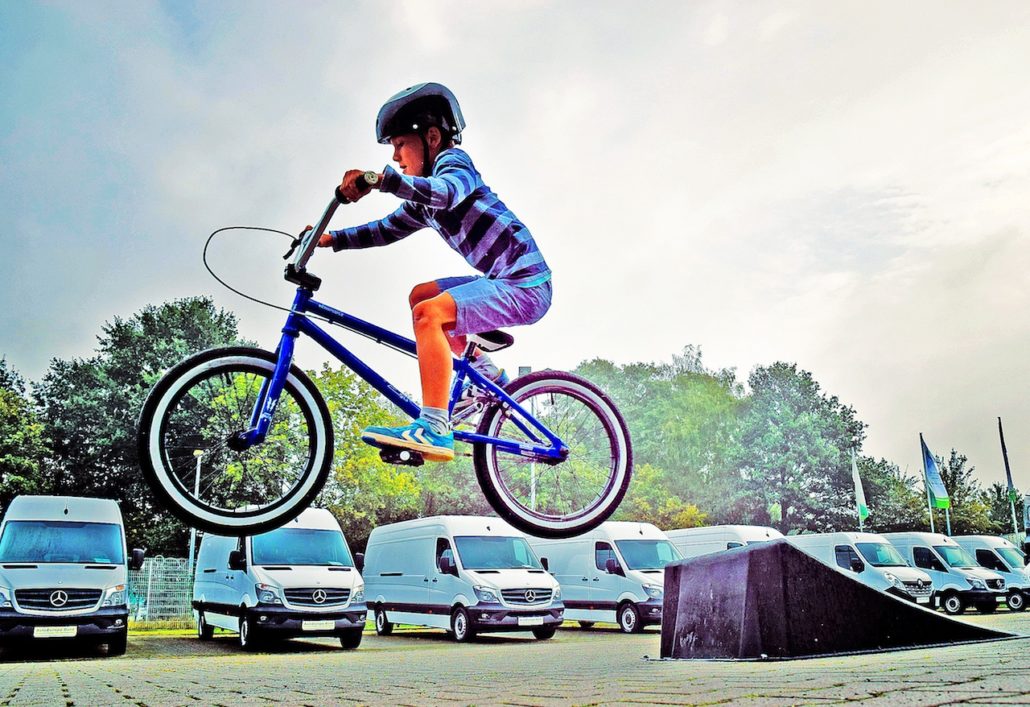The 4 Levels of Learning – The Secret to Hacking New Skills
McDonald’s just mentioned this past week that they’re going to be introducing automation to their restaurants in a big way this next year.
I shared it on Facebook and the overwhelming thought process is that the world is moving to a more and more automated society.What does this mean for people who work the jobs that are affected by automation?
Well, here in Indiana, it’s meant that many of those displaced workers have had to go to school and get taught a new set of skills for a changing economy.
In this post, I’m going to share with you the 4 Levels of Learning and how we all should navigate them to master our new skills.
Why This is Important
You might be thinking, “JC, I know if I know something or not. Why do I need labels?”. The truth is that you might not need labels.
But some of us – me included – want to decipher the world that’s going on around us. I like to categorize people by their personalities, their strengths, their age, and their education level because I know that each one of those things will tell me a little about where they’re coming from.
That’s just one example of breaking down a complex system into smaller ones. It helps me relieve stress in trying to figure out where people are coming from. With those labels, I kind of know what to expect.
Same thing is true when it comes to labeling where you are in your learning journey. It helps you realize where you are in your process so you know whether or not you have more things to learn or if you’re ready to help other people know what you know – if that’s your type of thing. 🙂
So, let’s get started:

Level 1: A grandson getting to see what biking is all about.
Level 1: Unconscious Incompetence
Do you remember the first time that you found out that something existed and you had to find out more about it? Probably not. When was the last time? Probably today, huh?
That state that you were in before you found out that thing existed was you being unconsciously incompetent. In other words, you didn’t know what you didn’t know.
In this state, you might have a sense of wonder, awe, and excitement – just like the grandson in the image to the right.

Level 2: Starting out on his first bike ride
Level 2: Conscious Incompetence
Ok, so you know this entire new world exists now of this new thing. Let’s say it’s riding a bike.
You might have seen all the big kids do it in your neighborhood. Heck, they might have been doing tricks on them.
As you start trying to start to ride a bike, you realize that you can’t even keep the damn thing up – let alone jump.
There’s just so much to learn and to do.
The thing with this phase is to know that you’re going to suck for awhile. You might even hate it and stress out a bit.
Learning to pedal and steer on training wheels all the way up to learning to keep balance. These were all things we had to learn to ride.
But in retrospect as someone who’s learned to ride now, you realize that you needed to “embrace the suck” in learning to ride a bike.
How many times did you fall off your bike when you were learning to just ride it?
I know I started laughing so hard everytime I fell off. I didn’t know what hurt more – my chest from laughing or my stomach from getting hit from the handlebars! 🙂

Level 3: A more seasoned vet saves himself from a spill.
Level 3: Conscious Competence
After enough practice, things to get a bit more fun. You’ll begin to realize that you know the basics of what you’re doing and you’re aware of what’s going on.
When I was learning to ride my bike, I didn’t really care about doing jumps. I just wanted to learn to ride FAST! Once I figured that out, I then wanted to get better at using my gears to get up hills better. Later, as I picked up riding again in college, it was going down small stairs and popping small hops to get on sidewalks.
In your situation, it might take you a shorter time than a year plus to figure out your new skill. It might take you more time. Again, it depends on how often you practice your skill (once a week vs 10 days straight) and how focused you are when you’re doing it.

Level 4: A young master working on his craft.
Level 4: Unconscious Competence
By the time you reach level 4, you’ve hit a certain level of mastery of the skill. You might not have everything down, but you’ve learned enough that new people are coming to you because you just seem to have the answers. Your skill is really just a part of who you are at this point.
In the biking example, I can think of the process it took me to learn how to ride, but that process was over many years as I needed to learn bits here and there. As I was learning them, I wasn’t thinking of the process it took me to get to that point.
All masters have this problem.
That’s why I say you should make it a usual practice to meet and engage with people who are just one or two steps ahead of you. They can teach you things better than if you were talking with a master. In fact, that’s exactly why, I’ve had to tune out Pat and other experts more recently. It’s not that I don’t think they know what they’re talking about. It’s simply that they’re so far up in their experience that they’ve gone into what I call “professor mode”. Thankfully Pat still explains things now in 2016 like he always has, but I’d really like to be talking to 2011 Pat as he was discovering things that I’m discovering myself today. Thankfully that Pat is still available in the archives (via the Wayback Machine.)
Bonus! Level 5: Shared Competence
You might have heard that the quickest and easiest way to learn something is to try and teach it to someone else. I heard this all the time as I was going through college and it wasn’t really until my first time as a lab TA that I found out what this really meant. I was used to teaching my friends who were closer to me in skill, but when it came to teaching freshman students, wow – there was definitely a difference!
If you are trying to become an expert in a field or someone who is trying to teach to others how to do something, you’re going to have to break down what you already know into steps your audience can follow. The higher your expertise, the trickier that’s going to become.
That’s why the best way to do it is to think of a transformation you want someone to go through and then make a 5 to 7 step process that they’ll make that transformation in.
That way, you’ll have it in small enough bites that the new person doesn’t get mind blown by all there is to know and you’ll be able to keep on eye on their progression easier.
How would you teach someone to ride a bike? What would those 5 steps be?
Action Steps:
So I hope that this process gives you a little more of an understanding of where you are in learning your new skill in whatever it is that you’re learning to do.
I think if you know that these are all part of doing something new, then you’ll probably have less stress about the small stuff… (unless you’re in engineering in college. Than it’s always going to suck until you graduate! Lol. jk!) Having less stress about learning something new will empower you to embrace who you are even more and just take things in stride a bit more.
Below I’d love to hear from you guys where you’re at in your journey of learning a new skill. Have you learned to embrace the suck? Do you find it hard to explain certain things to newbies? Let me know!





Leave a Reply
Want to join the discussion?Feel free to contribute!